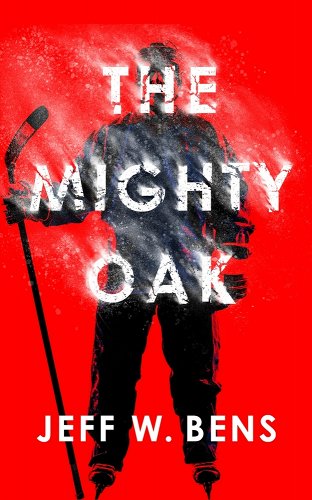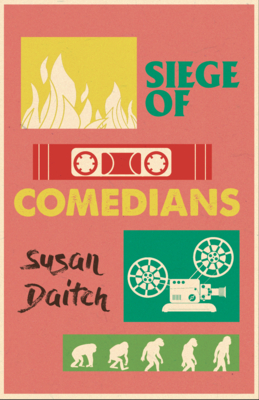Autumn is upon us at the New England Review office, and so is literary release season! Here are six more recent releases from NER authors.
The Mighty Oak (Blackstone Publishing), Jeff W. Bens’s sophomore novel, receives a paperback release this month. An emotional tale, set into action by the death of a mother and a middle-aged hockey-playing antihero’s journey home, The Mighty Oak “tackles male violence, the complexities of parenthood, and the contrary draw to both numbness and connection in wholly alive and thrilling ways.” Bens’s short story, “Golden Day,” appeared in NER 19.1.
Playwright, author, and translator James Magruder’s Vamp Until Ready (Rattling Good Yarns Press) creates a unique portrait of Ithaca in the ’80s through the linked narratives of a small cast of characters, all affiliated by employment at the Hangar Theatre. A “pleasant romp” in ‘townie’ community and character, Vamp Until Ready promises to explore identity and chance. Magruder’s piece, “Matthew Aiken’s Vie Bohème,” was published in NER 32.3.
Susan Daitch, whose essays were published in NER 42.1, releases her new novel Siege of Comedians (Dzanc) this October. Told in triptych, the novel’s three arcs thread, “across time by intersecting crimes and themes of language, cultural assimilation, and nationalist conflicts.” Described as “part political thriller, part comic noir,” Siege of Comedians engages with human trafficking and refugee crises alongside broader issues of identity.



Poet, frequent NER contributor, and former director of Middlebury’s Bread Loaf Writers’ Conference Michael Collier publishes Missing Mountain (University of Chicago Press). Collier’s eighth poetry collection, comprised of new and selected poems, both chronicles and celebrates “the development of Collier’s art and the cultivations of his passions and concerns.” Collier’s poetry has appeared most recently in NER 32.3, and his “Tribute to Steve Orlen,” appeared in NER 31.4.
Author and Middlebury alumnus Peter Knobler collaborates with Bill Bratton in a new memoir, The Profession: A Memoir of Community, Race, and the Arc of Policing in America (Penguin Press). Building around Bratton’s experience as a police chief and commissioner in Los Angeles, New York City, and Boston, The Profession provides insider insight to the examination of policing, past and present. Knobler’s essay “Dancing in the Dark” appeared in NER Digital in 2018.
Alex McElroy’s debut novel, The Atmospherians (Simon & Schuster), follows two friends, Sasha and Dyson, as they embark on an entrepreneurial journey to solve toxic masculinity. Heralded by early critics as “darkly funny and glitteringly satirical,” the novel explores contemporary issues at the intersections of wellness, wokeness, social media culture, and gender politics. McElroy was a 2017 finalist for the New England Review Award for Emerging Writers. Their piece, “Endure,” was included in NER 37.4.
Cumulative seasonal lists of NER author releases can be found at our Bookshop.org page.



